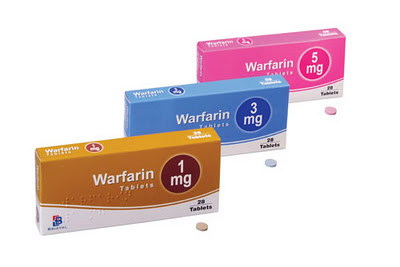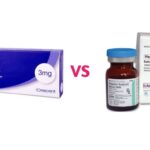Why Take Warfarin At 6pm?

Virtually every patient wants prescriptions to be effective. Some medications work more effectively when taken at specific times. When getting a new prescription, the pharmacist is tasked with reviewing important information with you regarding medication management. Among the things he or she may cover is when to take medication. Just like certain prescriptions should be taken with food or with a full glass of water for best results, timing also matters when it comes to taking your daily medications.
The best time to take medication may vary depending on the drug, but if your pharmacist says to take your dose at the same time each day, it’s best that you do so.
What is warfarin?
Warfarin is in a class of medications called anticoagulants (‘blood thinners‘). It works by decreasing the clotting ability of the blood. It helps to keep blood flowing smoothly in your body by decreasing the amount of certain substances (clotting proteins) in your blood.
Warfarin is used to treat blood clots (such as in deep vein thrombosis-DVT or pulmonary embolus-PE) and or to prevent new clots from forming in your body. Preventing harmful blood clots helps to reduce the risk of a stroke or heart attack. Conditions that increase your risk of developing blood clots include a certain type of irregular heart rhythm (atrial fibrillation), heart valve replacement, recent heart attack, and certain surgeries such as hip or knee replacement.

How should I take warfarin?
Take warfarin exactly as prescribed by your doctor. Follow all directions on your prescription label. Your doctor may occasionally change your dose. Do not take warfarin in larger or smaller amounts or for longer than your doctor tells you to.
Take warfarin at the same time every day, with or without food. Never take a double dose. Warfarin can make it easier for you to bleed. Seek emergency help if you have any bleeding that will not stop.
The dose is unique for every person who takes it. Typically, people begin by taking between 2 to 5 mg by mouth once daily. Your doctor will probably start you on a low dose of warfarin and gradually increase or decrease your dose based on the results of your blood tests. Make sure you understand any new dosing instructions from your doctor.
You will need frequent “INR” or prothrombin time tests (to measure your blood-clotting time and determine your warfarin dose). You must remain under the care of a doctor while taking this medicine.
If you receive warfarin in a hospital, call or visit your doctor 3 to 7 days after you leave the hospital. Your INR will need to be tested at that time. Do not miss any follow-up appointments.
Tell your doctor if you are sick with diarrhea, fever, chills, or flu symptoms, or if your body weight changes.
How long should I take warfarin for?
If you have had a blood clot in your leg or lungs, you’ll probably take a short course of warfarin for 6 weeks to 6 months. If you take warfarin to reduce your risk of having a blood clot in future or because you keep getting blood clots, it’s likely your treatment will be for longer than 6 months, maybe even for the rest of your life.
You may need to stop taking warfarin 5 to 7 days before having any surgery, dental work, or a medical procedure. Call your doctor for instructions.
Continue to take warfarin even if you feel well. Do not stop taking warfarin without talking to your doctor.
Why take warfarin at 6pm?
Earlier studies have shown that warfarin is best taken in the evening, doctors usually recommend 5-6 pm daily before or after eating to maximize its effect. However, according to a new study by doctors at the University of Alberta, the time of day that patients take warfarin might not matter.
The study, published in the Annals of Family Medicine, evaluated the effect of taking warfarin in the evening versus morning across the offices of 236 primary care clinicians. Warfarin users were randomized to take the medication in the evening either to switch to morning administration or to continue evening use. Time in the therapeutic range (TTR) was assessed to detect differences in the stability of warfarin’s anticoagulant effect.
Over the course of 7 months, doctors and researchers tracked the amount of time that patients’ blood levels were outside warfarin’s effective range. What they found was no significant difference in effectiveness based on whether the drug was taken during the day or at night.





